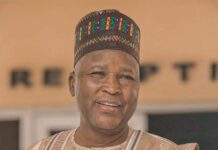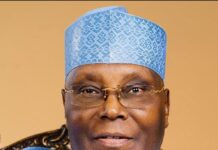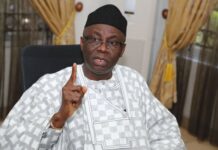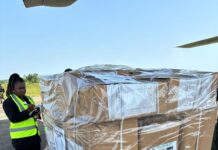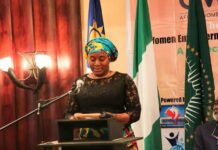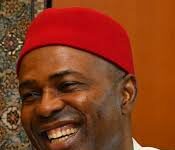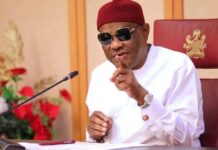Dilemma of PDP’s Presidency, Political Calculation in 2023
POLITICS DIGEST – The zoning of the presidential ticket in 2023 may be a big challenge to the Peoples Democratic Party (PDP) reports that the party may not be in a hurry to do so because of likely backlash.
The debate in the country for some time now has been where the presidential candidate of the ruling All Progressives Congress (APC) in 2023 would come from. And now that the petition filed by the Peoples Democratic Party (PDP) candidate, Alhaji Atiku Abubakar, challenging the re-election of President Muhammadu Buhari in the last presidential election has been dismissed by the Supreme Court, the attention has shifted to the party.
Last week, PDP National Publicity Secretary, Kola Ologbondiyan was forced to call an emergency press conference, to react to news reports concerning the party’s presidential ticket in the next election. He told newsmen that PDP is yet to discuss the 2023 presidential election.
“If anything, the PDP is currently working with Nigerians on how to win its elections in Kogi and Bayelsa states and will not be distracted by individuals who found themselves operating in the highest offices of the land but failing in governance.
“As a party, we are also working with our respective state governors and legislators across the country as they work hard, in line with the manifesto of our party, to improve on the welfare and development of Nigerians,” Ologbondiyan said.
Some sections of the media had insinuated that PDP is planning to retain the ticket in the North, just as it did in 2015. One of the national dailies talked of “fluid presidential zoning” between North-East and South-East.
There was also another report of alleged division within the party. According to the report, the party was divided into two: “the second term governors’ camp and the Rivers State governor, Nyesom Wike’s camp.” It added that “the two camps are fighting deadly and bitter over the control of the party’s machinery.”
Wike will be completing his second term in office in 2023, so also about nine other PDP governors. The report said the Rivers State governor is nursing the ambition of running with his Sokoto State counterpart, Aminu Tambuwal for the presidency in 2023.
Tambuwal sought for the PDP ticket in 2019 but lost to Atiku at the Port Harcourt convention. The news medium said the Rivers State governor who supported Tambuwal during the last convention would throw his weight once again behind him and would become his running mate, if he secures PDP’s ticket.
But the other second term governors, according to the report, who are not comfortable with Wike’s ‘influence’ in the PDP, are reportedly working to thwart this move. “There is a fierce battle over the control of the party machinery between Wike and other governors, otherwise known as the second term governors of the party in Sokoto, Benue, Taraba, Ebonyi, Abia, Akwa Ibom, Cross River, Enugu and Delta.
“It is a fact that Wike almost single-handedly installed the present national chairman of PDP, Prince Uche Secondus. This is evident to any keen observer, where the leadership of the PDP belongs. Although all of them belong to the second term group, they are up in arms against their colleague from Rivers, ostensibly because of the 2023 elections,” the paper quoted a party source.
On the other hand, the PDP National Chairman, Prince Uche Secondus was said to have fallen out with Wike because of his alleged loyalty to Atiku. The Rivers State governor who felt betrayed by Secondus after bankrolling his chairmanship campaign, was said to have turned his back on him. It was even reported that the governor stopped the contract awarded to Secondus’ wife by the Rivers State government.
In another breathe, the report said “There is the likelihood of a fluid presidential zoning to be between the South-East and the North-East. This is a delicate option that would be used to assuage tension between the two zones.
“We are conscious that President Muhammadu Buhari will not be contesting in 2023 and his absence will leave a big vacuum in APC. So we will do everything that will keep our members and stakeholders in check against defection to seek their aspirations in another party.”
Another report said if North-East is considered for the ticket, the immediate former Gombe State governor, Ibrahim Dankwambo and present Bauchi State governor, Bala Mohammed, would show interest, although it said Mohammed would withdraw if Atiku is still interested. He would inherit Atiku’s structure if the former Vice President decides to become an elder statesman.
And as for the Vice Presidential slot, the paper said the battle would be between Wike and former Anambra State governor, Peter Obi.
Ologbondiyan however, said PDP “governors are not divided along any lines of ambition towards 2023, neither is there any plot to stop the ambition of any of our members.” He described those behind the reports as “political terrorists whose plan is to mislead the public and cause disaffection within the ranks of our party with the hope of using such fabrications to further their own selfish political ambitions. “For the avoidance of doubt, our party is yet to discuss the 2023 presidential election, overtly or covertly, at any time whatsoever.
“Moreover, it is also imperative to counsel, without any equivocation, that enemies of our party, who feel threatened by the rising profile of Governor Nyesom Wike, should have a rethink on their incessant attacks on the governor. “The PDP appreciates the contribution of Governor Wike, as well as all our governors, to the growth of our party and urge all members and supporters to ignore those seeking to cause disaffection in our ranks.”
Read Also:
No doubt, PDP is worried over the 2023 presidency. Unlike in 2015 when the party quickly ceded the 2019 presidency to the North, the decision over the next presidential ticket might divide the party, if not properly handled. Since 1999 when Nigeria returned to civil democracy, only two geopolitical zones – South East and North Central, have produced neither the president nor the vice president of the country.
The North West has produced the position twice, as well as the vice president. The South-South has produced the president and vice president, so also the South West. Before the debate was shifted to the PDP, northern and southern leaders were divided over the 2023 presidential ticket of the APC. Some people in the north said the region has been shortchanged in key positions of government and would therefore retain the presidency in 2023.
This gave rise to the feeling that some forces in the party might push for the position to go to the North East when the North West completes its tenure. The argument would be that Nigeria is divided into six geopolitical zones and no longer north and south.
There is where the idea of PDP picking its presidential candidate from the zone is coming from, so that the zone would be the battle field between the two parties. Aside North East, there were speculations that APC may zone the ticket to South West.
This is because it is the only region in the south where the party has strong presence, winning five out of the six states in the region. Elder statesman, Chief Robert Clarke (SAN) said the South West region is well positioned to produce President Buhari’s successor in 2023. He hinged his argument on the fact that since 1999, presidency goes to any region where two of the three major tribes – Igbo, Yoruba, and Hausa/Fulani – formed an alliance.
“The problem in Nigeria is that the politician has created for themselves a situation where if two of them gather against the third one, they will want political power to be rotating among themselves. “There are three major tribes – the Igbo, Yoruba and the Hausa. Where two of these major tribes gang up, that is where the power is going. In 1999, when the constitution came in, Obasanjo wasn’t sponsored by the Yoruba, even though he was a Yoruba man; the Yoruba rejected him, and sponsored Falae.
But the Northerners and the Igbo voted for him; the Yoruba never voted for him and he still won because the Northern Hausa and the Eastern Igbo decided to support him. “In 2003, Obasanjo came for the second term; again, he was not sponsored by the Yoruba; the Yoruba put up another candidate but still he won. In 2007, Yar’Adua was not supported by the Yoruba but the Igbo supported the Northerners and he won. “In 2011, Jonathan came in, he’s not a Northerner but he was supported by the North and the Igbo, and he won.
Having realised that power is between two of these sects, the Yoruba and the Hausa merged in 2015 and they produced Buhari. “In 2023, if the Igbo don’t find themselves holding onto the Yoruba as a friend or the Hausa as a friend and allow the Hausa and the Yoruba to hold themselves together as in 2015, then that ticket will produce the president.
“That means the Yoruba will produce the president, the Northerners will produce the vice president because that is the reality of the number. Politics is in number. Since the demise of Zik, the Igbo had never had a leader and that is the fault of the Igbo race today.
“If tomorrow, the Igbo bring out a young vibrant Igbo leader who can now find his way either to go with the Northern Hausa and form alliance or the Yoruba and form alliance, then the hope of an Igbo president in Nigeria will come up,” Clarke further argued. Though South East leaders and their sympathizers are calling for Igbo presidency in 2023, it is understandable why APC is not looking towards their side. Minister of Transportation, Rotimi Amaechi said South-East has no claim for presidency in 2023 because they did not vote for APC in 2019 presidential election.
. “I don’t know what they will do now for voting against the APC. For refusing to support the APC, they cannot come to the table to demand the presidency slot. “For people like us in the APC, if the Igbo had come and voted Buhari, they would boldly tell Mr. President and the National Chairman of the party that presidency should go the South East since the South- South; South West and North West have produced president. “What argument would the South East come up with now to convince anybody that they deserve the slot for 2023 president?”
Amaechi asked. If APC denies South East the ticket, PDP has no reason to shun the region as well. This is because the party’s voting strength, since 1999, is from South East and South- South geopolitical zones. Apart from controlling four out of the five states in South East, the zone has continued to vote massively to PDP in presidential election, including Anambra State, which has been under the control of another political party since 2006. In the last presidential election, PDP got 95 percent zone in the state. Elder statesman, Edwin Clarke, described the South East as “a very vital part of this country,” adding, “no matter whatever anybody says, the South East is a very important part of this country before and after independence,” which cannot be pushed aside.
Unlike 2015, PDP may not be in a haste to zone its 2023 presidential ticket. This is because, the party may pay dearly if it zones the ticket without knowing the direction the ruling party is going. Denying South East the ticket may lead to mass defection to the APC. Already, there are suggestions that two or three governors from the zone should move to the ruling party to secure the presidential ticket for the zone. If this happens, PDP would lose a very big vote advantage. On the other hand, if APC retains the ticket in the North, there is the likelihood that what played out in the 2015 and 2019 presidential elections might repeat itself. This is why the PDP is in a dilemma.






